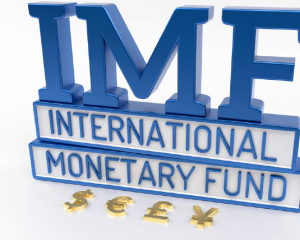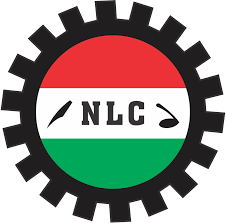Health
IMF lauds FG’s management of COVID-19 pandemic

The International Monetary Fund (IMF) has lauded the Federal Government’s proactive management of the COVID-19 pandemic and its economic impacts.
The commendation is contained in the organisation’s Executive Board’s conclusion of the 2021 Article IV Consultation with Nigeria, obtained from its website on Tuesday.
According to the board, in spite of the management of the pandemic, the outlook remains subject to significant risks, including from the pandemic trajectory, oil price uncertainty and security challenges.
It recognised that the Nigerian economy was recovering from a historic downturn benefitting from government policy support, rising oil prices and international financial assistance.
“After registering a historic deficit in 2020, the current account improved in 2021 and gross foreign exchange reserves have improved, supported by the IMF’s Special Drawing Rights (SDR) allocation and Eurobond placements in September 2021.
“Notwithstanding the authorities’ proactive approach to contain COVID-19 infection rates and fatalities and the recent growth improvement, socio-economic conditions remain a challenge.
“Levels of food insecurity have risen and the poverty rate is estimated to have risen during the pandemic,” it said.
IMF said the outlook faces balanced risks as on the downside, low vaccination rates expose Nigeria to future pandemic waves and new variants, while higher debt service to government revenues pose risks for fiscal sustainability.
It added that a worsening of violence and insecurity could also derail the recovery.
“On the upside, the non-oil sector could be stronger, benefitting from its recent growth momentum, supportive credit policies, and higher production from the new Dangote refinery.
“Nigeria’s ratification of the African Continental Free Trade Agreement (AfCFTA) could also yield a positive boost to the non-oil sector while oil production could rebound, supported by the more generous terms of the Petroleum Industry Act,” it said.
IMF, however, emphasised the need for major reforms in the fiscal, exchange rate, trade and governance areas to lift long-term, inclusive growth.
On exchange rate, the directors welcomed the removal of the official exchange rate and recommended further measures towards a unified and market-clearing exchange rate.
This, they said, was to help strengthen Nigeria’s external position, taking advantage of the current favorable conditions.
They also noted that exchange rate reforms should be accompanied by macroeconomic policies to contain inflation, structural reforms to improve transparency and governance, and clear communications regarding exchange rate policy.
The directors highlighted the urgency of fiscal consolidation to create policy space and reduce debt sustainability risks.
“In this regard, they called for significant domestic revenue mobilisation, including by further increasing the Value Added Tax (VAT) rate, improving tax compliance and rationalising tax incentives.
“Directors also urged the removal of untargeted fuel subsidies, with compensatory measures for the poor and transparent use of saved resources.
“They stressed the importance of further strengthening social safety nets,” it said.
According to IMF, it considers it appropriate to maintain a supportive monetary policy in the near term, with continue vigilance against inflation and balance of payments risks.
It also encouraged the Federal Government to stand ready to adjust the monetary stance if inflationary pressures increase.
To this end, it recommended strengthening the monetary operational framework over the medium term by focusing on the primacy of price stability and scaling back the central bank’s quasi-fiscal operations.
The fund commended the banking sector’s resilience in the face of the pandemic and the planned expiration of pandemic-related support measures.
It added that directors agreed that while the newly launched eNaira could help foster financial inclusion and improve the delivery of social assistance, close monitoring of associated risks would be important.
They also encouraged further efforts to address deficiencies in the Anti Money Laundering/Combating Financing of Terrorism (AML/CFT) framework.
“Directors emphasised the need for bold reforms in the trade regime and agricultural sector, as well as investments, to promote diversification and job-rich growth and harness the gains from the AfCFTA.
“Improvement in transparency and governance are also crucial for strengthening business confidence and public trust,” it said.
The directors called for stronger efforts to improve transparency of COVID-19 emergency spending.
They also agreed that Nigeria’s capacity to repay the IMF was adequate, while encouraging addressing data gaps to allow timely and clear assessments of reserve adequacy. (NAN)
FEATURES
Why Genotype Compatibility Matters in Preventing Sickle Cell

Sickle Cell Disease (SCD) is a genetic blood disorder that arises when both parents carry the sickle cell gene, creating a 25 per cent chance of transmitting the disease to their offspring with each pregnancy.
Globally, an estimated 400,000 babies are born annually with SCD.
Medical experts have consistently warned that genotype incompatibility remains the leading cause of new cases and should be a central consideration among intending couples.
According to them, avoiding unions between carriers, especially those with AS and SS genotypes could greatly reduce new incidences, limiting them to carriers alone.
In high-income countries, the average life expectancy for individuals living with SCD is approximately 57 years.
However, the outlook is more severe in Sub-Saharan Africa, where 50 to 80 per cent of children born with the disease die before the age of five.
In contrast, babies born with SCD in the United States have a 95 per cent chance of reaching adulthood.
Given these disparities, experts are unanimous that prevention is the most effective and affordable strategy for eliminating the disease.
Prof. Titus Ibekwe, Provost of the College of Health Sciences, University of Abuja, underscored this view during a recent public lecture in Abuja.
It was titled “The Evolving Therapeutic Landscape in Sickle Cell Disease”.
He emphasised the importance of proactive partner selection based on genotype compatibility.
“Prevention is key in the fight against sickle cell, and this costs nothing.
“It simply means paying close attention when choosing a life partner ensuring that individuals with the AS genotype do not marry another AS.
It is also that an AS does not marry an SS, or two SS individuals do not marry”.
Ibekwe explained that such unions greatly increase the risk of having children with SCD, and that sustained adherence to genotype-based partner selection could drastically reduce, if not eliminate, the disease burden.
Beyond prevention, Ibekwe noted that treatment options for individuals living with the disease have expanded, including advanced therapies such as bone marrow transplantation and gene therapy.
He explained that gene therapy aims to correct the faulty gene responsible for the disease, allowing it to function like a healthy one.
Also speaking on the burden of SCD in Nigeria is Dr Maureen Achebe, Clinical Director of Haematology at Harvard’s Brigham and Women’s Hospital and Associate Professor of Medicine at Harvard Medical School.
She disclosed that Nigeria bears the highest global burden of the disease.
“Every year, 300,000 babies are born with SCD in Sub-Saharan Africa, and 150,000 of them are born in Nigeria alone,” she said.
Achebe outlined this as a major public health concern and warned that, with Nigeria’s high fertility rate, the number is expected to rise greatly by 2030.
She advocated for newborn screening to detect SCD before symptoms begin, noting that babies appear normal at birth but benefit greatly from early diagnosis and care.
“Without early identification and intervention, infants will continue to die of undiagnosed anaemia, pneumococcal sepsis, or severe malaria,” she said.
Achebe noted that the sickle cell trait historically evolved as a natural protection against malaria.
According to her, individuals who carry one sickle cell gene (AS genotype) are less likely to die from severe malaria compared to those without the gene (AA genotype).
“However, those with full-blown SCD suffer from chronic complications, reduced quality of life, poor educational and professional outcomes, and premature mortality,” she said.
Additionally, she emphasised the importance of preventive strategies, urging the use of vaccinations, daily folic acid supplements, and proactive infection control.
She also recommended hydroxyurea as a proven daily treatment that improves survival rates and reduces the severity of symptoms.
While she recognised the promise of gene therapy and bone marrow transplantation, she pointed out their high costs, limited accessibility, and the fact that children under 12 tend to respond better to these treatments.
Achebe clarified that while gene therapy treats the symptoms and effects of the disease, it does not eliminate the sickle cell gene from the patient’s reproductive cells, meaning affected individuals can still pass it to their children.
She warned that the total economic toll of SCD in Sub-Saharan Africa currently stands at over $9.1 billion annually, projected to rise to $10 billion by 2030.
“Tackling SCD requires strong financial and political will to scale up newborn screening and ensure nationwide access to care,” she said.
Achebe further stressed the need for public awareness, early diagnosis, and cultural education to dispel myths surrounding the disease.
“Sickle Cell Disease is a scientifically inherited condition, not caused by witchcraft,” she affirmed.
In the same vein, Prof. Obiageli Nnodu, Director of the Centre of Excellence for Sickle Cell Disease Research and Training (CESRTA), University of Abuja, highlighted the importance of continued research and capacity building.
She explained that CESRTA, established in 2015, has made major progress in clinical and translational research to bridge treatment gaps in Nigeria and beyond.
“Our centre provides platforms for skills development and engages in strategic collaborations with local and international institutions to improve care outcomes,” she said.
Following the 5th Global Congress on Sickle Cell Disease, the centre was upgraded to the National Centre of Excellence for SCD Research.
This is a major milestone in Nigeria’s efforts to combat the disease.
As the world marks World Sickle Cell Day on June 19, experts are calling for a renewed push toward genotype awareness, partner compatibility, and universal newborn screening as critical tools in the fight to eliminate SCD. (NANFeatures)
Health
Contraceptive Pills Can’t Cause Cervical Cancer – Expert

Mrs Roseline Akinlabi, Adolescent and Youth Sexual Reproductive Health Desk Officer, Osun Primary Healthcare Board, says contraceptive pills cannot cause cancer of the cervix in women.
Akinlabi, a certified family planning trainer, said this on Monday in Osogbo during a virtual engagement programme organised by the State Public Health media team in collaboration with a non-governmental organisation, The Challenge Initiative (TCI).
She spoke on “The impacts of Family Planning Myths And Misconceptions on Spacing, Unplanned Pregnancy and Unsafe Abortion”.
The expert, also a registered public health nurse, said that the popular belief that contraceptive pills could encourage infidelity and cause permanent infertility in women was inaccurate.
According to her, contraceptive pills cannot cause cancer of the ovary and the lining of the uterus in women, as being speculated.
“Myths and misconceptions are the major challenge to uptake of family planning in the state and the country at large.
“Various myths and misconceptions about family planning methods have led to high prevalence of teenage pregnancy, high maternal, mortality and morbidity rate, among others.
“These myths and misconceptions often surround family planning methods, creating confusion and hindering access to essential care.
“They negatively impact child spacing and abortion rates by preventing the use of contraceptives, leading to unwanted pregnancies, and subsequently, more abortions.
“These false beliefs create barriers to access and utilisation of family planning methods, increasing the risks of unwanted pregnancies and risky sexual behaviour.
“There is urgent need to dispel these myths and equip individuals with accurate facts to make informed decisions about their reproductive health”, she said.
Akinlabi called for collective responsibilities to dispel rumours about contraceptives, raise awareness about the benefits of family planning, and create safer space for girls and women in the society.
According to her, family planning empowers individuals to choose the number, spacing and timing of their children, leading to improved health outcomes for the mother and the child.(NAN)
Health
Teaching Hospital Performs 2nd Kidney Transplant in Maiduguri

The University of Maiduguri Teaching Hospital (UMTH), has successfully performed its second living-donor kidney transplant, 15 years after its first living-donor kidney transplant
The Chief Medical Director (CMD) of the UMTH, Prof. Ahmed Ahidjo, made this known at a news conference on Wednesday in Maiduguri.
“This is not the first time UMTH is doing the transplant.
The first time UMTH conducted a kidney transplant was in August 2010 and now the hospital has come back with full force to resume the excercise,” he said.Ahidjo also announced that the already 20 patients were admitted awaiting surgery on the same kidney transplant.
He appealed to donors to contribute funds to support the have not patients who needed the surgery so dearly.
The CMD said that though, the hospital provided free services being a federal government facility, adding that the patient’s dialysis had been subsidised by the government by reducing everything to N12,000 which was less than eight dollars compared with 1,000 dollars charged for same dialysis elsewhere.
Ahidjo said that the target was to make transplant one of the cheapest in West Africa, saying their facility was largest in the country with a capacity to accommodate up to 85 patients at once.
“UMTH has four fully equipped theatre rooms. All for kidney transplant which were fully equipped with modern equipment,” the CMD said.
He, however, commended TETFUND for its support to the hospital in terms of equipment and other infrastructure.
Ahidjo also commended Gov. Babagana Zulum of Borno for donating N50 million to the hospital to carry out research on causes of kidney related diseases in the North-east.
The CMD said that some of the research findings revealed that diabetics, hypertension and dehydration were linked with the kidney related diseases in the region.
“The causes of kidney issues for now are diabetics, highpertension and exact causes are not yet known but many samples were taken to laboratories and the result is awaited,” Ahidjo said. (NAN)



























